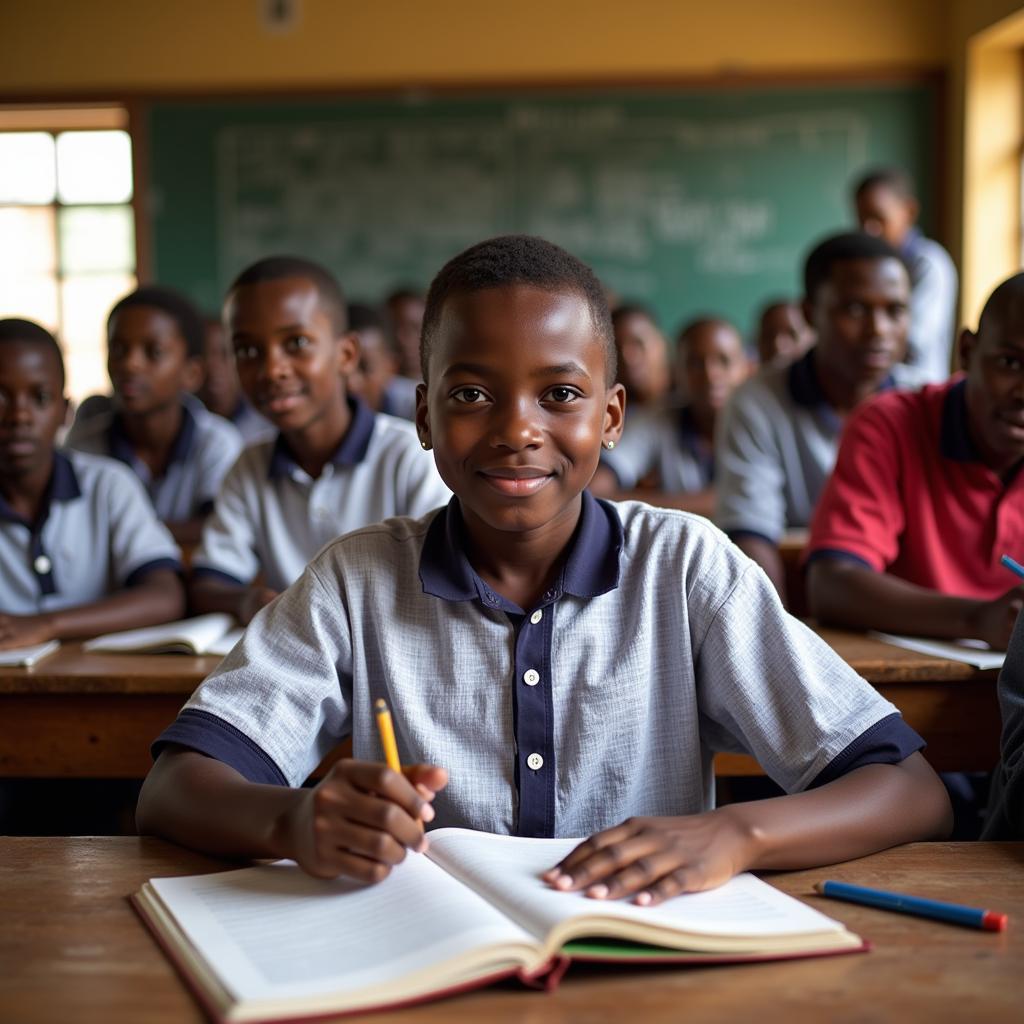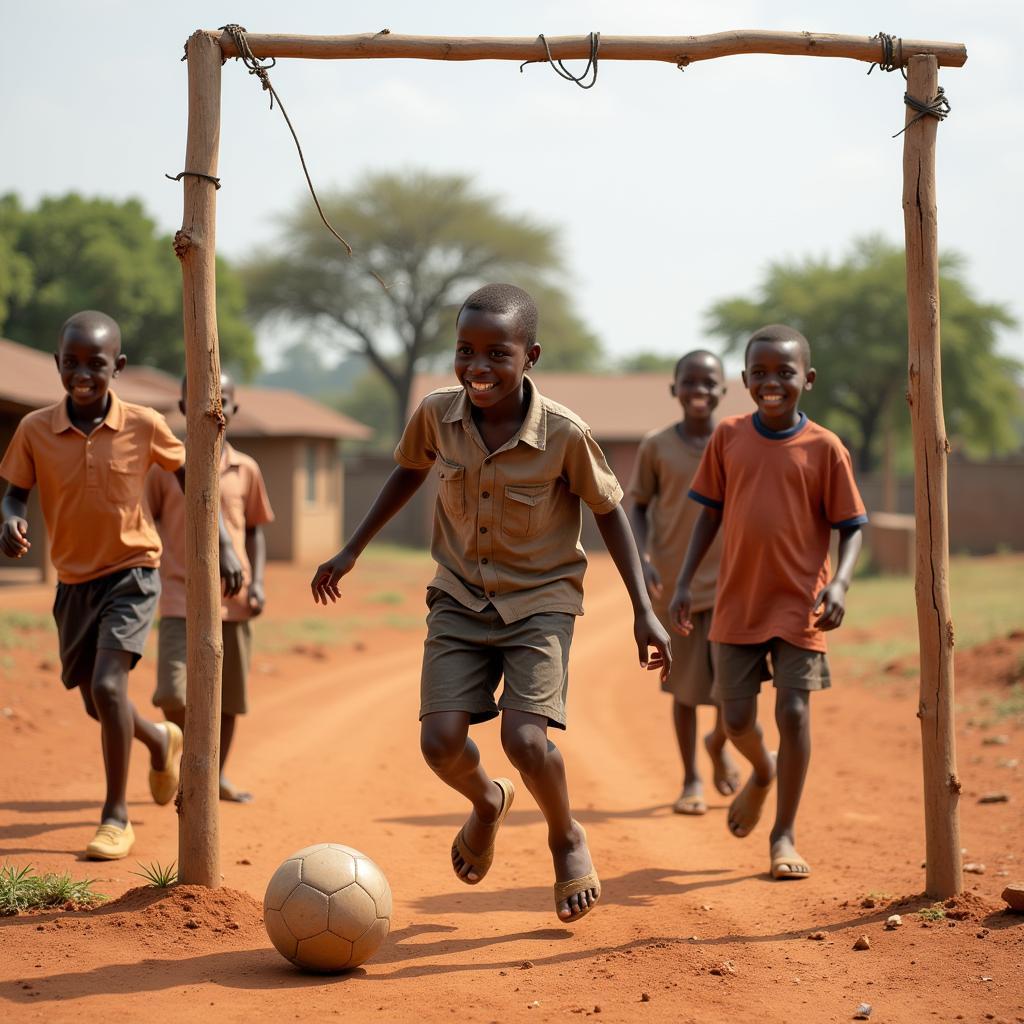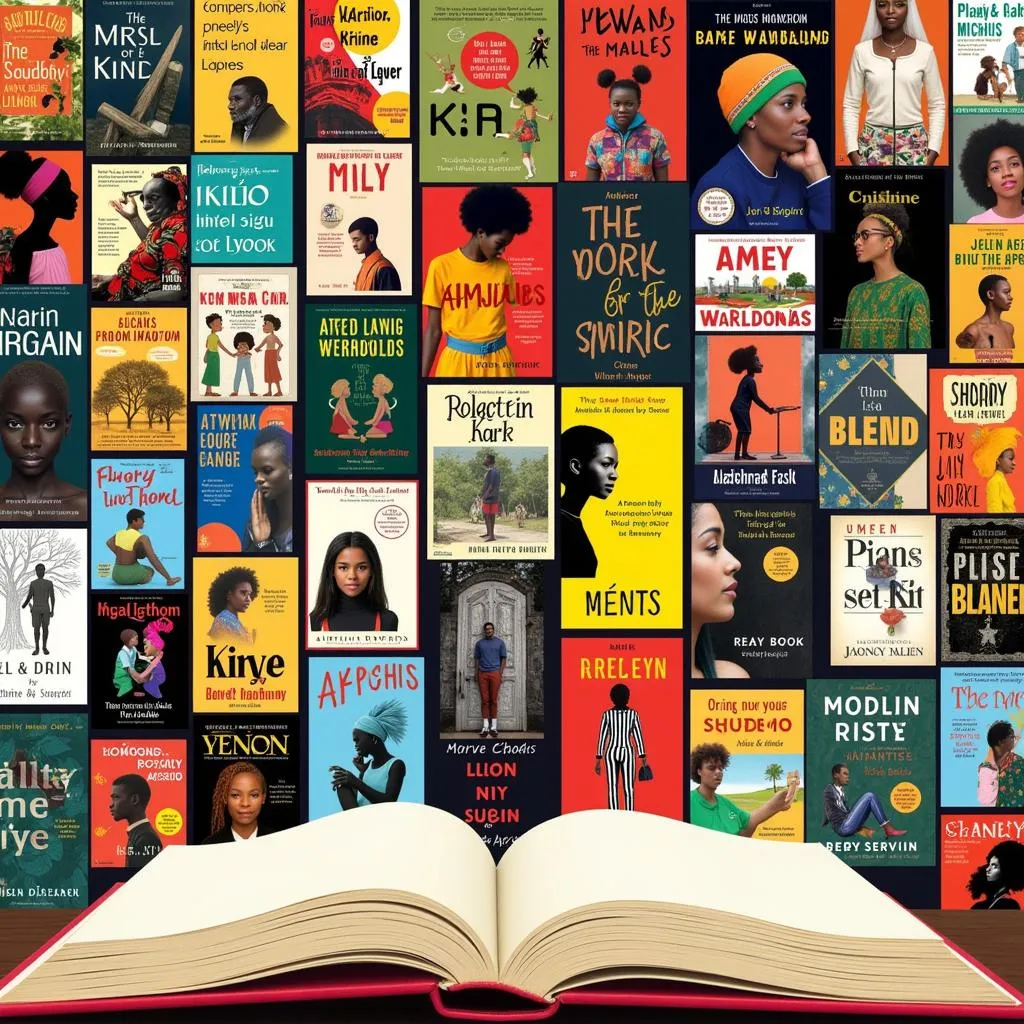Understanding the African and Nigerian Child
The lives of African And Nigerian Children, in particular, are shaped by a rich tapestry of cultural traditions, societal values, and unique experiences. From the bustling streets of Lagos to rural villages nestled in the heart of the continent, childhood in Africa is as diverse as the landscape itself. This article delves into the multifaceted world of the African and Nigerian child, exploring the cultural influences, challenges, and triumphs that define their upbringing.
Cultural Influences on Child Development in Africa
Across the vast African continent, cultural norms play a pivotal role in shaping a child’s development. From an early age, children are instilled with a deep sense of community, respect for elders, and an understanding of their place within the family structure.
- Extended Family Networks: Unlike many Western societies, where nuclear families are the norm, extended families are the backbone of African communities. Grandparents, aunts, uncles, and cousins often live together or in close proximity, providing a strong support system for raising children.
- Oral Traditions: Storytelling, music, and dance are not merely forms of entertainment in Africa; they are powerful tools for transmitting knowledge, values, and history from one generation to the next. Children grow up listening to folktales that teach moral lessons, historical accounts, and cultural beliefs.
- Respect for Elders: Respect for elders is paramount in African cultures. Children are taught to address their seniors with deference, obey their instructions, and value their wisdom and experience. This reverence for age fosters a sense of continuity and connection to the past.
The Nigerian Child: A Closer Look
Within the diverse tapestry of African cultures, Nigeria stands out with its own unique traditions and challenges. Home to over 250 ethnic groups, each with its own language and customs, Nigeria offers a microcosm of the continent’s rich heritage.
- Language and Identity: Nigerian children often grow up speaking multiple languages, including their native tongue, English (the official language), and possibly other regional dialects. This linguistic diversity contributes to a strong sense of cultural identity and adaptability.
- Education System: Education is highly valued in Nigerian society. While access to quality education remains a challenge in some areas, there is a strong emphasis on academic achievement and the pursuit of higher education.
- Economic Disparities: Nigeria, like many African nations, faces economic challenges. This disparity is often reflected in the lives of children, with access to healthcare, education, and basic necessities varying widely depending on socioeconomic background.
 Nigerian Children in a Classroom
Nigerian Children in a Classroom
Challenges and Triumphs
African and Nigerian children, while steeped in rich cultural traditions, also face unique challenges. Poverty, limited access to healthcare, and regional conflicts can impact their well-being and opportunities. However, amidst these challenges, their resilience, optimism, and unwavering spirit shine through.
- Child Labor: In some parts of Africa, children are often required to contribute to the family income, leading to child labor practices. Addressing this issue requires a multifaceted approach, including poverty reduction initiatives and access to education.
- Access to Healthcare: While progress has been made in improving healthcare systems, access to quality medical care remains a significant challenge in many African countries. Infant and child mortality rates, while declining, are still a cause for concern.
- Resilience and Hope: Despite the challenges, African and Nigerian children exhibit remarkable resilience and a zest for life. Their strong family bonds, community support, and unwavering hope for a brighter future are a testament to the enduring human spirit.
 African Children Playing Soccer
African Children Playing Soccer
Conclusion
Understanding the African and Nigerian child requires recognizing the interplay of cultural influences, socioeconomic factors, and individual experiences. From the importance of extended family to the challenges of poverty and limited access to resources, their journey is both unique and universal. By acknowledging their struggles, celebrating their triumphs, and working together to address the challenges they face, we can contribute to a brighter future for the children of Africa.
FAQs
1. What is the average family size in Nigeria?
Nigerian families are typically large, with an average of 5-6 children per household.
2. What are some common childhood games in Africa?
Children in Africa enjoy a variety of traditional games, including “Mancala,” a strategy board game, and “A skipping rope,” a game involving jumping over a swinging rope.
3. What are some of the challenges facing education in Africa?
Access to quality education in Africa is often hindered by factors such as poverty, lack of infrastructure, and a shortage of qualified teachers.
4. How can I support organizations working to improve the lives of African children?
Numerous reputable organizations are dedicated to improving the lives of African children. You can support them through donations, volunteering, or raising awareness about their work.
5. What are some cultural values instilled in African children?
African children are raised with a strong emphasis on respect for elders, community, and a strong work ethic.
Need Support?
If you need further assistance or have any inquiries, please don’t hesitate to contact us:
Phone: +255768904061
Email: [email protected]
Address: Mbarali DC Mawindi, Kangaga, Tanzania
Our dedicated customer support team is available 24/7 to assist you.

